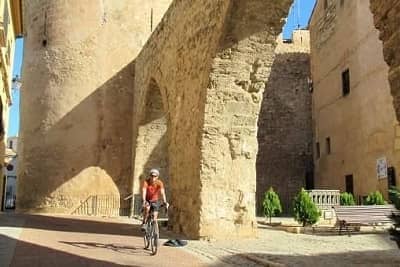Xativa - Town of Castles and Popes
Xativa is a town situated in the Valencia region of Spain, roughly equidistant between the two biggest cities in this part of Spain - Valencia and Alicante. Like many of the towns in the area, Xativa grew to prominance in Roman times, where it had an important linen industry. It remained an important town throughout the Middle Ages, notably due to the fact that it was the birthplace of two popes.
The town is set in a picturesque location, with high mountains looming to the south and smaller, but still significant hills to the east and west. The warm mediterranean climate is perfect for the olive and orange trees which surround the town, as well as much of the Valencia Community.
The castle, which has undergone recent European Union development to improve the garden sections, is generally in very good condition. In a region where every other town has a castle, Xativa Castle still stands above most in both the scale and state of its buildings. Each of the many sections tells a story about Xativa; from the tight, low entry to the prison area, to the fine gardens displaying the various coats of arms of inflential figures in the history of the region. The towers and walls also offer fine views of the hilly countryside that surrounds the town.
He was described by Machiavelli in 'The Prince' as being corrupt and without honour, and has been a regular figure in popular culture since his death in the early 16th century. In Xativa Castle you can learn about his upbringing and the influence that his tenure as Pope had on Spain in particular.
He was Pope at a time when the Spanish Inquisition was at its most active, and when the Americas had recently been discovered. Far from offering a steady and guiding hand, he dragged the papacy through numerous scandals - which to many effectively making the Spanish monarchs at the time the true leaders of the Catholic faith.
A route to Xativa is available as an optional extension at the end of our Valencia cycling holiday. It is definitely worth a visit for anyone with a deep interest in the colorful Borja dynasty!
The town is set in a picturesque location, with high mountains looming to the south and smaller, but still significant hills to the east and west. The warm mediterranean climate is perfect for the olive and orange trees which surround the town, as well as much of the Valencia Community.
Xativa Castle
Xativa, however, is most famous for the large castle with spans two hills overlooking the town. The first part of the castle (Castillo Menor) was constructed by the Iberians, before the Romans added Castillo Mayor, the larger and more imposing building at the turn of the first millennium. Both castles were then significantly reformed under the arab control of the region, before undergoing minor renovations in the following eight hundred years.The castle, which has undergone recent European Union development to improve the garden sections, is generally in very good condition. In a region where every other town has a castle, Xativa Castle still stands above most in both the scale and state of its buildings. Each of the many sections tells a story about Xativa; from the tight, low entry to the prison area, to the fine gardens displaying the various coats of arms of inflential figures in the history of the region. The towers and walls also offer fine views of the hilly countryside that surrounds the town.
The Popes
Inside the castle there are also rooms dedicated to the two popes associated with the Xativa - Callixtus III and Alexander VI. Both from the infamous Borja family. Alexander was the more colourful character of the two; widely regarded as being one of the more controversial popes. He was viewed much more as a politician than a man of religion, and had a negative reputation as a libertine and nepotist, particular among the influential Italian barons.He was described by Machiavelli in 'The Prince' as being corrupt and without honour, and has been a regular figure in popular culture since his death in the early 16th century. In Xativa Castle you can learn about his upbringing and the influence that his tenure as Pope had on Spain in particular.
He was Pope at a time when the Spanish Inquisition was at its most active, and when the Americas had recently been discovered. Far from offering a steady and guiding hand, he dragged the papacy through numerous scandals - which to many effectively making the Spanish monarchs at the time the true leaders of the Catholic faith.
Xativa away from the Castle
Other than the castle, Xativa has a pretty town centre with several historic churches, but nothing that is especially remarkable. It is a place to see on a day trip rather than basing yourself here for a holiday. For cyclists, it is reachable on a round trip from either Alicante or Valencia (roughly 120km); although you can also get a local train from Valencia which can cut the distance down considerably.A route to Xativa is available as an optional extension at the end of our Valencia cycling holiday. It is definitely worth a visit for anyone with a deep interest in the colorful Borja dynasty!
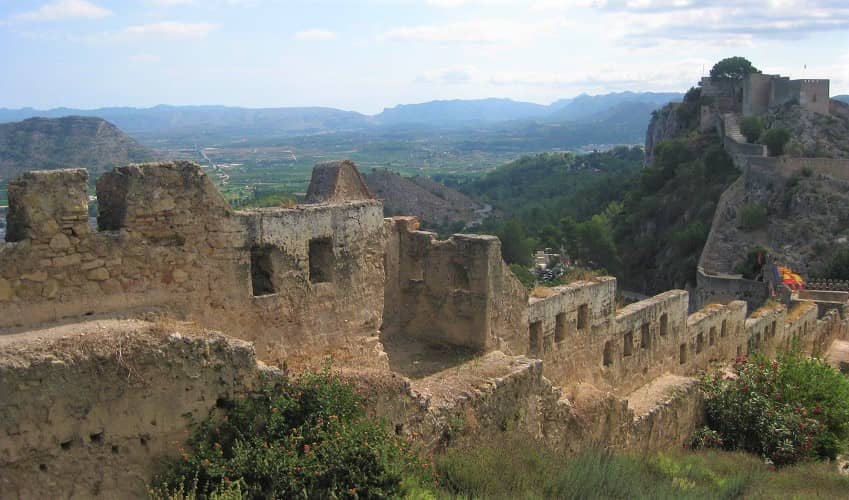
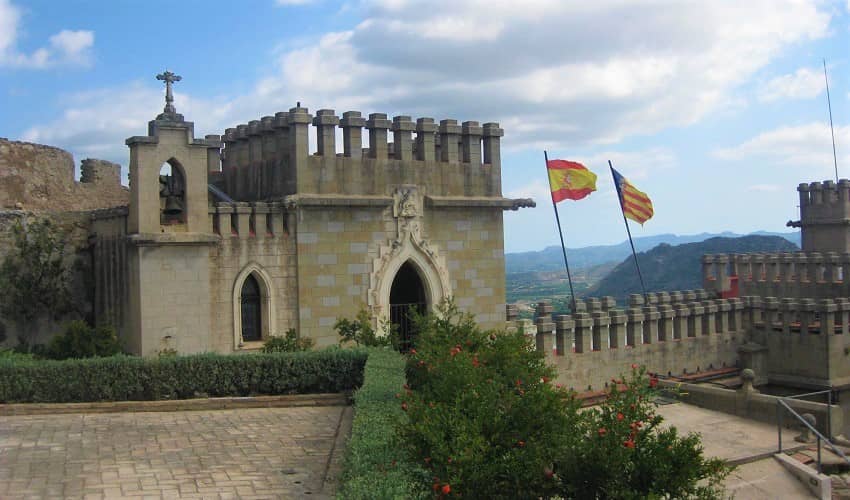
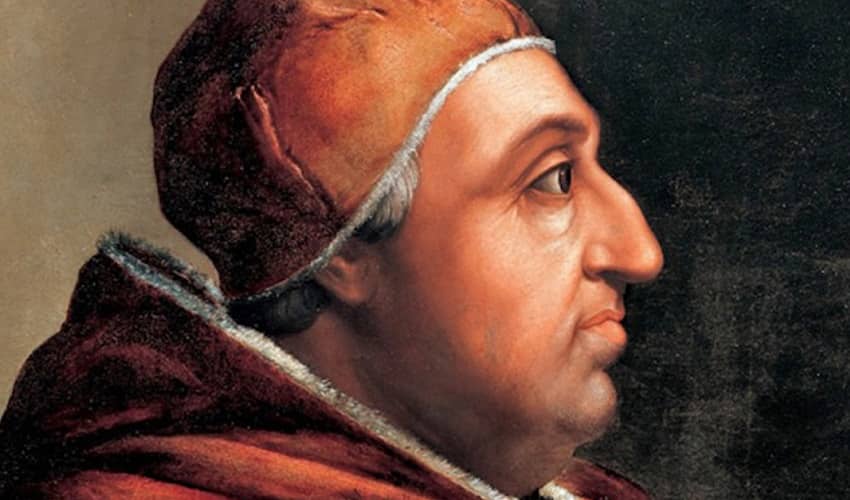
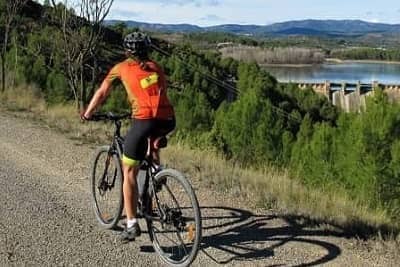
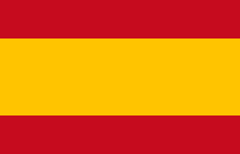 Spain
Spain
